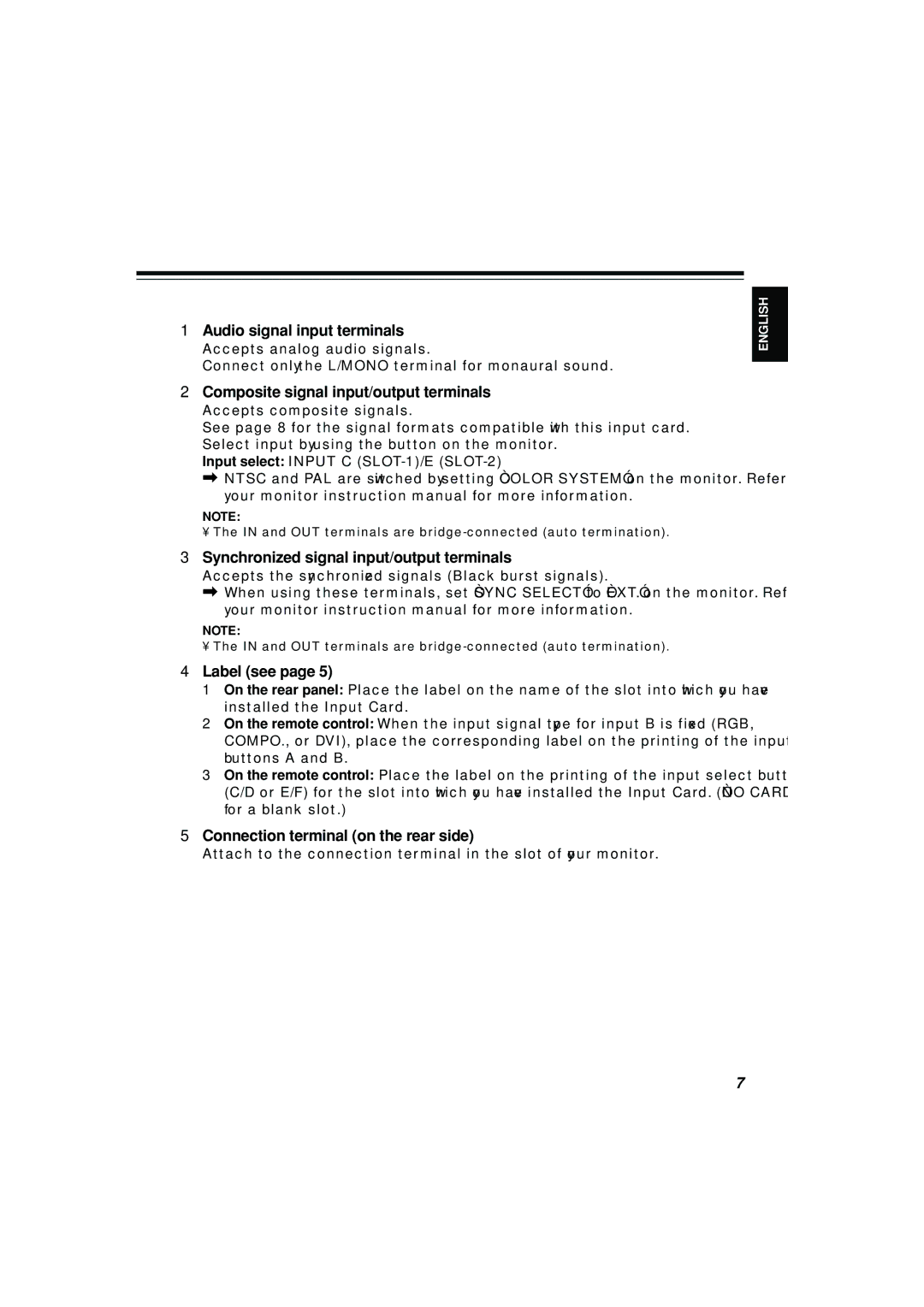1Audio signal input terminals
Accepts analog audio signals.
Connect only the L/MONO terminal for monaural sound.
2Composite signal input/output terminals
Accepts composite signals.
See page 8 for the signal formats compatible with this input card. Select input by using the button on the monitor.
Input select: INPUT C
![]() NTSC and PAL are switched by setting “COLOR SYSTEM” on the monitor. Refer to your monitor instruction manual for more information.
NTSC and PAL are switched by setting “COLOR SYSTEM” on the monitor. Refer to your monitor instruction manual for more information.
NOTE:
• The IN and OUT terminals are
3Synchronized signal input/output terminals
Accepts the synchronized signals (Black burst signals).
![]() When using these terminals, set “SYNC SELECT” to “EXT.” on the monitor. Refer to your monitor instruction manual for more information.
When using these terminals, set “SYNC SELECT” to “EXT.” on the monitor. Refer to your monitor instruction manual for more information.
NOTE:
• The IN and OUT terminals are
4Label (see page 5)
1 On the rear panel: Place the label on the name of the slot into which you have
installed the Input Card.
2On the remote control: When the input signal type for input B is fixed (RGB, COMPO., or DVI), place the corresponding label on the printing of the input select
buttons A and B.
3On the remote control: Place the label on the printing of the input select buttons (C/D or E/F) for the slot into which you have installed the Input Card. (“NO CARD” is for a blank slot.)
5Connection terminal (on the rear side)
Attach to the connection terminal in the slot of your monitor.
ENGLISH
7
